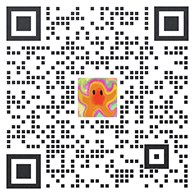2022-12-30 13:03:49
。
game theory plays a substantial role in understanding the interaction of individuals and society. by relying on mathematical probabilities and economic models, it provides a better understanding of how individuals make choices and how their choices affect the distribution of real-world benefits.
game theory provides an excellent way to analyze economic decisions efficiently by discretizing a decision-making process. it focuses on the strategic interactions between different individuals — like individuals in business negotiations — talking into account self interests and outside conditions into predictions. by testing predictive scenarios, game theory theories can help guide decision makers in organizations through the paths of greatest potential success from their particular start points.
game theory can also be used to analyze social decisions. by introducing the concept of mutual benefits, social game theory shows how people can work together and how people's behaviors and strategies can affect different outcomes. game theory algorithms can be used to optimize social activities, leading to improved outcomes and better cooperation among people.
various types of game theory can be used to study different aspects of a conflict in a social system — which could range from simple two-player games to complex scenarios of multiple participants. such games can be applied as predictive scenarios to understand potential behaviors among different participants in social situations.
game theory is a powerful approach for investigating the interaction of humans and society. it offers insights regarding the best strategies for decision makers to pursue. furthermore, it offers evolutionary answers to the types of efficient executions, or the types of outcomes to which individuals or organizations should strive for in order to maximize their benefits within a given social context. by understanding the implications of the game finds, businessmen, salary negotiators, policy makers, and others, can use this to gain an advantage in their activities.
博弈与社会第四次作业

## 代码:
#### 第一部分
from random import sample
def target():
nums=[1,2,3]
target=sample(nums,}
return target
#### 第二部分
def number_guess():
target=target()
while true:
guess = int
(input("""please guess a number:
place enter your guessed number :>>>"""))
if guess > target:
print("your lastgy: {} is smallasr than the answer". format(guess))
elif guess < target:
print("your saying: {} is greater than the answer ". format (guess))
else:
print ("you won! my secret number is {} ". format (target))
break
### 第三部分
if __name__ =='__main__':
number_guess()
博弈与社会讲义课后题答案

吗
1. a rational player’s dominant strategy is to make an decision that reliably yields the highest possible outcome regardless of others’ actions.
2. all four of the following should be taken into account when constructing a game theory model: (1) the actions or choices available to players in different stages, (2) the incentives or expected rewards of players for making certain decisions, (3) the perceived costs or risks associated with particular actions and (4) the potential competitive strategies employed by other players.
3. conflict arises in the prisoner's dilemma game because the prisoners would both be better off if neither one confesses to the crime, but will confess if the other confesses, leading to a “lose-lose,” rather than a desirable “win-win” situation, for both players.
4. the nash equilibrium occurs when every player's strategy is a best response to all strategies employed by the other players and, as a result, does not have an incentive to deviate from that given strategy without a decrease expected between the players' outcomes.


